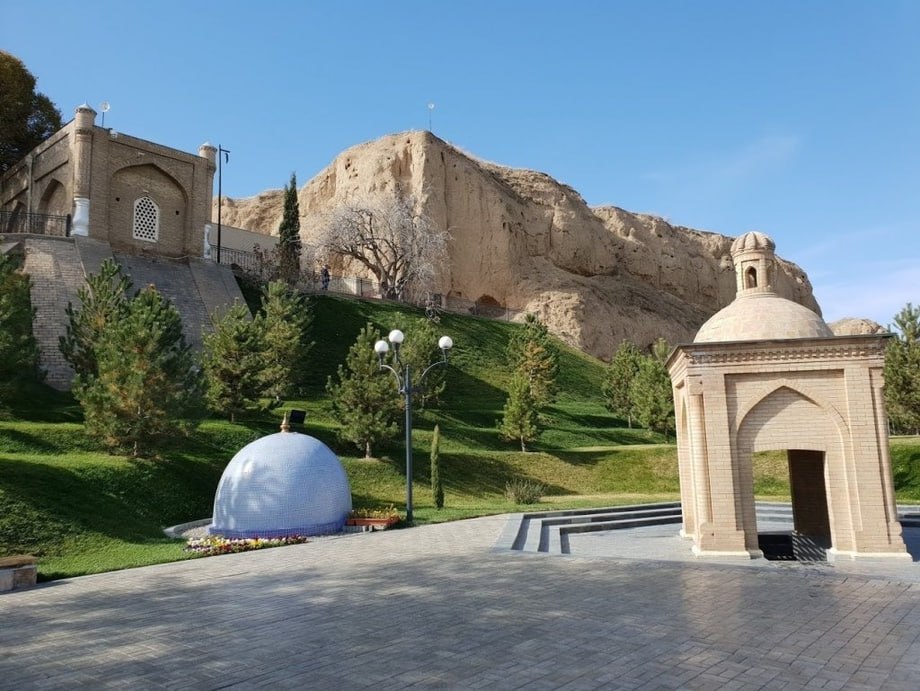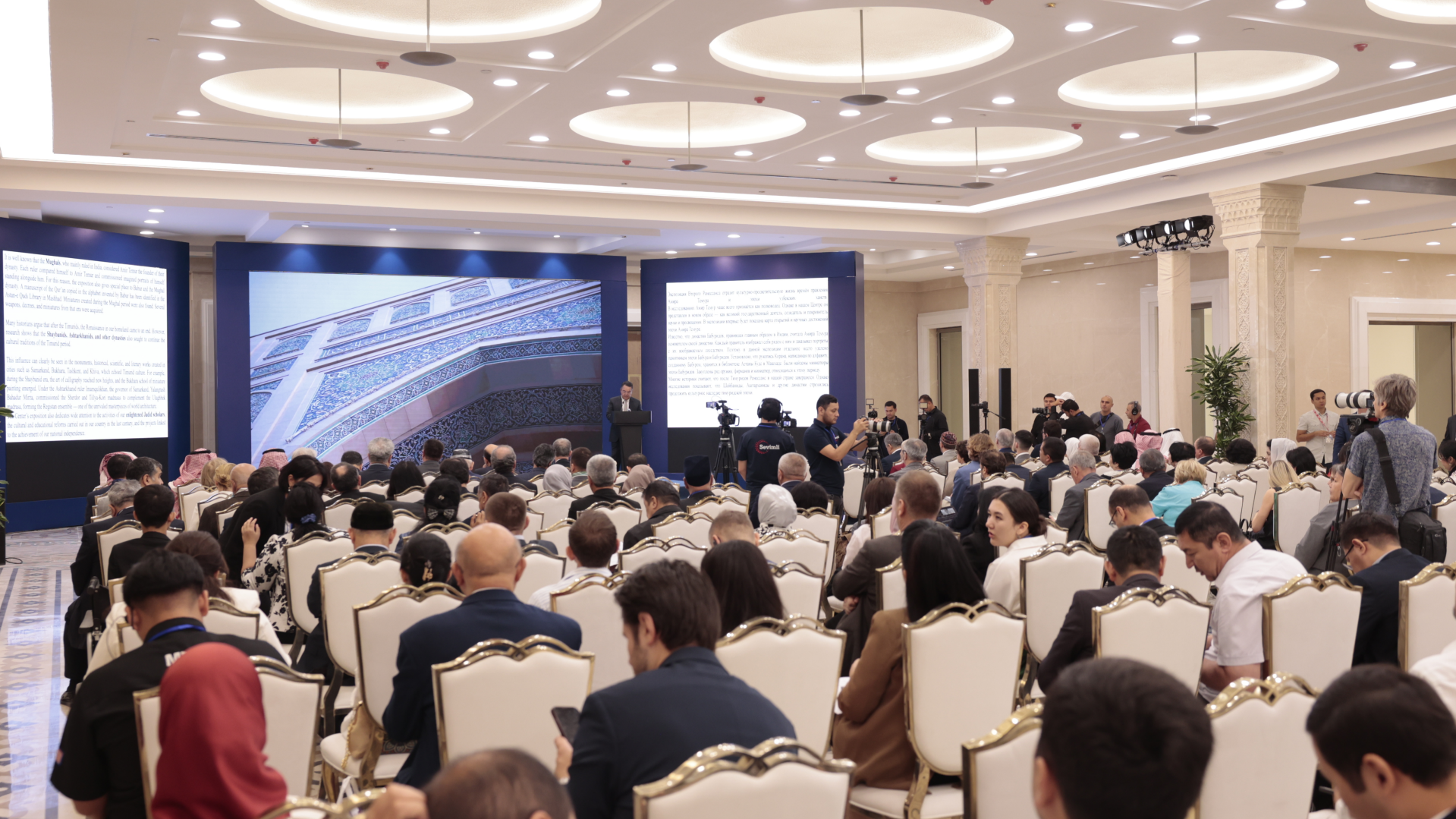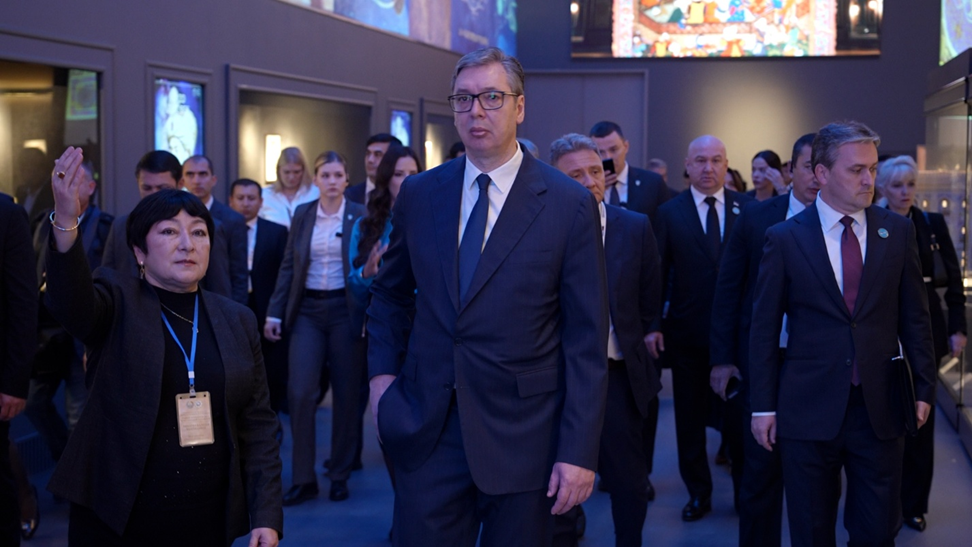Khoja Doniyor Mausoleum — a symbol of tolerance
🔴 A complex that reflects Amir Temur’s policy of tolerance
🔴 “Whichever land holds the remains of Doniyor, that land shall never be deprived of blessings”
🔴 The longest grave not recorded in the Guinness Book of Records

The Khoja Doniyor Mausoleum, located in the city of Samarkand, is considered a sacred site that attracts not only visitors from Uzbekistan but also pilgrims from across the Islamic world and beyond. Numerous legends and stories about the site have been passed down from generation to generation.
According to legends, there are two differing views about this grave. One group of scholars believes that it is the resting place of Prophet Doniyor (Daniel), a figure venerated in Christian, Islamic, and Jewish traditions. Other sources suggest that Khoja Doniyor was one of the Companions of the Prophet and a close associate of Qusam ibn Abbas in Samarkand.
Various religious sources contain information about Prophet Doniyor. Although he is not mentioned by name in the Qur’an, Islamic scholars have included him among the prophets. He is said to have lived in ancient Babylon, known for his ability to interpret dreams and read scriptures, and earned the respect of Babylonian and Persian kings.
Historical accounts state that during his campaigns in Asia Minor in the 14th century, Amir Temur visited the grave of Prophet Doniyor in the city of Shustar. After being told, “Whichever land holds the remains of Doniyor, that land shall never be deprived of blessings”, the conqueror decided to bring his relics to Samarkand. According to some legends, only the bones of his right hand and foot were brought and buried at this site.
Today, the grave at the Khoja Doniyor Mausoleum is 18 meters long, making it one of the longest graves in the world. It is said that after the prophet’s remains were buried, the grave extended naturally. The mausoleum was constructed to match its extraordinary size. Visitors to the site are often astonished by the scale and sanctity of the tomb.
Within the mausoleum’s grounds, there is also a spring believed to have healing properties, with a legend claiming it emerged from beneath a horse’s hoof. Pilgrims drink from this spring in the hope of receiving a cure. The fact that Muslims, Christians, and Jews visit this sacred place every year reflects its status as a shared cultural and religious heritage of humanity.
The Center of Islamic Civilization in Uzbekistan has planned to produce a special video about the history of the Khoja Doniyor Mausoleum to highlight Amir Temur’s policy of tolerance.
Most read

Over 100 experts from more than 20 countries of the world are in Tashkent!

President of Serbia Aleksandar Vučić visited the Islamic Civilization Center in Uzbekistan

The Center for Islamic Civilization – a global platform leading towards enlightenment











